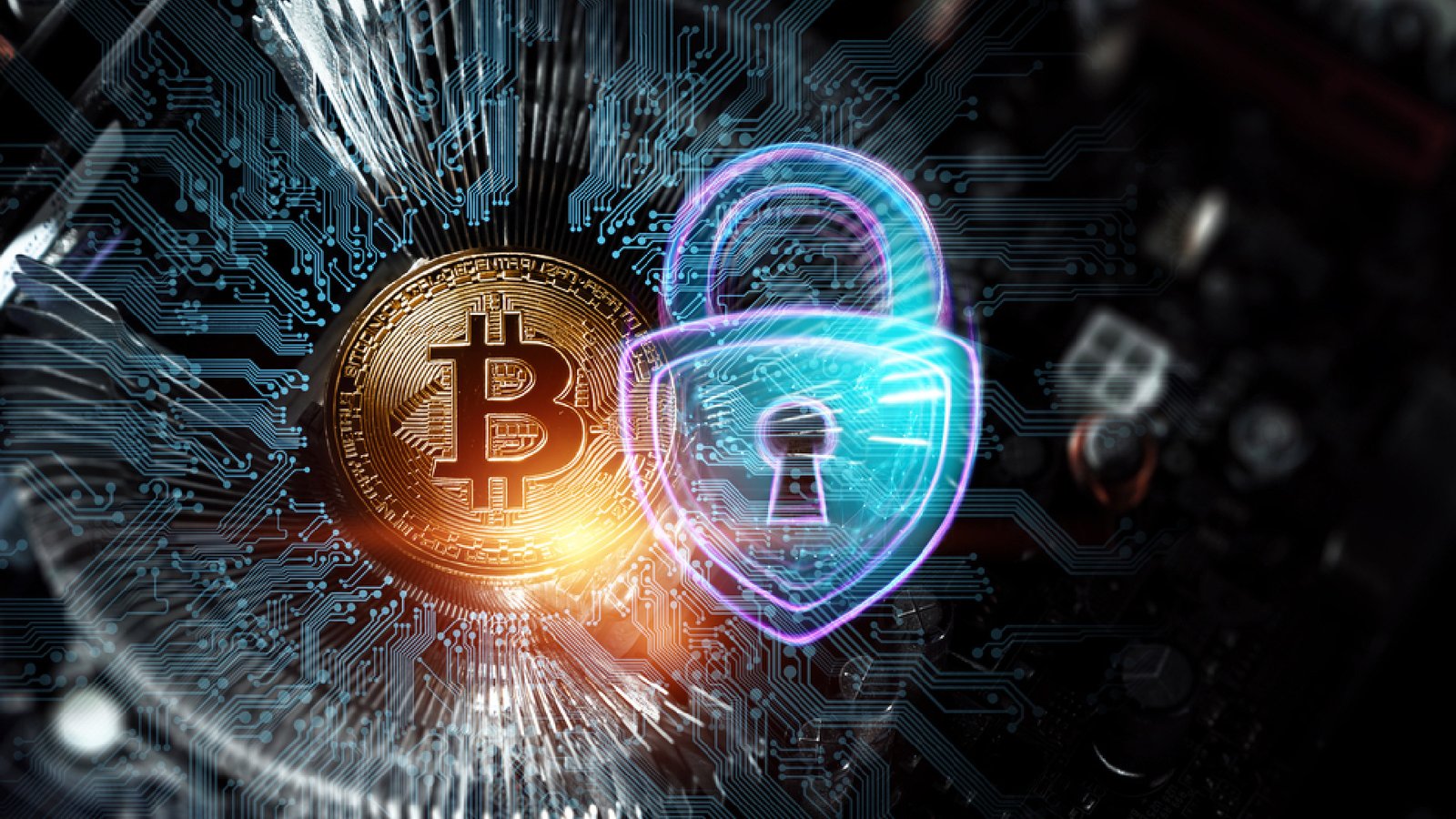
Every day, hundreds and thousands of Bitcoin transactions take place. The parties involved in each transaction are listed on the public blockchain of Bitcoin. So let’s say you were to make a larger purchase than for the fries that you made with cash so that no one would notice it on the credit card statement.
Utilizing Bitcoin would put your identity and transaction on display for curious eyes as well as law enforcement to view. This is where cryptocurrencies with more privacy come into play. These cryptocurrencies also referred to as privacy coins, mask your identity so you can spend your money any way you like.
What are Privacy Coins?
In order to protect the privacy of its users and their activity, privacy coins obfuscate transactions on its blockchain. Participants in a transaction would be aware of the parties and the amount involved. Any outside observer, however, won’t be able to get the same data.
The privacy coins’ invisibility makes them a potentially alluring avenue for money laundering as well as other illegal activities. As a result, the ongoing discussion over cryptocurrency privacy as well as regulation centers on privacy coins.
Privacy Coins Blockchains:
The blockchain is the key to cryptocurrencies, a decentralized database that records each transaction. With the use of this technology, cryptocurrencies can become decentralized and do away with middlemen like banks, handling the money.
As a result, coinages like Bitcoin are, in some ways, less private compared to the United States dollar. Anyone could theoretically view the specifics of any cryptocurrency transaction. Users can discover transaction amounts, wallet addresses, and possibly even true identities with strong enough tools.
With the use of privacy coins, investors can conduct transactions without disclosing their personal information to the public. This group of coins focuses on two objectives: concealing the identity of participants in transactions and obscuring the transactions themselves.
How Do Privacy Coins Work?
Any transactions that are recorded for cryptocurrencies using public blockchains will identify the sender, the recipient, and the swapped value. This information is concealed in various ways by the two most popular privacy coins in the industry, Zcash and Monero.
Zcash:
Zcash provides secure and open transactions. Customers have the option of using a z-address, which will hide the seller’s identity, or a t-address, which functions similarly to a public Bitcoin address. These z-addresses work with zero-knowledge proofs, which confirm the existence of the transaction for both buyers and sellers without disclosing any details of the transactions. Hence, in a transaction involving two z-addresses, anyone can determine that a transaction took place at a specific point in time just on the blockchain, but you are unable to determine who took part in the transaction or how much money was exchanged.
Monero:
Monero has a number of characteristics that when combined make it incredibly challenging to locate any transactional data on the blockchain. Starting with stealth addresses also referred to as one-time public keys, Monero separates the two accounts involved in a transaction from outside blockchain observers. In addition, Monero employs ring signatures that further obscure the sender’s identity by fusing it with fictitious ones. In 2017, Monero introduced RingCT, a transaction amount obscuring technology.
Privacy Coins’ Rise as a Reaction to Surveillance:
Big Brother appears to be everywhere in the digital age. From government organizations to data-hungry tech giants, the pursuit of information is unrelenting. In light of this context, the need for financial privacy might have stimulated the development of privacy coins cryptocurrencies that place an emphasis on anonymity.
While traditional cryptocurrencies such as Bitcoin offer some privacy protection, snoopers can nonetheless access their public ledgers. To close this gap, coins like Dash, Zcash, and Monero use increased transaction secrecy.
Benefits For Companies and Users:
These coins have a number of advantages, including the protection of personal information and the facilitation of secure transactions in unstable economic environments. Users and businesses looking for increased security and confidentiality find them appealing due to their distinctive qualities.
Keeping Personal Information Private:
Privacy coins offer a shelter for anyone looking to safeguard their financial information as data breaches increase in frequency. These cryptocurrencies add an extra degree of protection by obscuring transactions, guaranteeing that personal information is kept secret.
For instance, to stay ahead of the competition, a business owner could prefer to maintain supplier payments private. Such transactions are simple with these currencies.
Managing Volatile Economies:
Alternatives like privacy coins are available in nations with volatile currencies or tight money regulations. For instance, the economic unrest and hyperinflation in Venezuela have prompted people to look for alternatives. They can offer some level of monetary security and freedom in these circumstances since their anonymity enables users to escape consequences while preserving financial independence.
Furthermore, these coins can support commerce between people and companies in areas lacking a strong or dependable traditional banking infrastructure. In these situations, privacy coins can act as a safer and more effective way to send money without worrying about monitoring or interference.
What are Privacy Coins Used For?
To protect users’ anonymity when transacting in cryptocurrencies, privacy coins were created. Yet, this is a problem that needs a solution for the majority of cryptocurrency consumers. The typical Bitcoin “retail user,” as per Nirmal Koroth, co-founder as well as chief technical officer at Merkle Science, doesn’t worry about privacy. The same conclusion was reached by a study conducted at the University of Massachusetts Lowell, which found that Bitcoin users frequently forsake anonymity in favor of the ease that Bitcoin offers.
Fulfills Demand For Privacy:
Instead, businesses and organizations are driving demand for privacy-enhancing cryptocurrency advances. For instance, “you really don’t want the whole world to realize that, Hey transaction has been done,” if you’re a corporation like Google or Facebook making a significant transaction says Aryath Koroth. There was a completely new blockchain market that emerged around privacy because major organizations needed to have privacy.
Even cryptocurrency exchange-traded transactions can be hidden. Coin mixers are a common obfuscation technique, particularly when dealing with Bitcoin. With the use of decoy transactions, two or even more transactions are combined into the blockchain. As a consequence, one transaction with a list of each of the receivers and senders appears on the blockchain rather than numerous transactions with clear senders, recipients, and amounts. It is still impossible to know who sent what to whom, even though it’s not completely private as privacy coin is.
Do Privacy Coins Have Legal Status?
Nation Based:
Depending on the nation, privacy coins may or may not be legal. Privacy coins are still allowed in the US. The Secret Service did advise Lawmakers to regulate cryptocurrencies with improved privacy, though. In testimony to Congress in 2018, Robert Novy, the deputy assistant director of the Secret Service Office of Investigations, stated that “criminals are increasingly using anonymity-enhanced currencies and services, such as cryptocurrency tumblers and mixers, to obscure transactions on the blockchain.”
Institution’s Role:
Due to concerns that privacy coins could be used as a conduit for financial crimes like money laundering or terrorism financing, nations including South Korea and Japan have outright prohibited the trading and possession of privacy coins. The use of privacy coins has been identified by the Financial Action Task Force – FATF as a potential warning sign for money laundering via virtual assets.
Due to anti-money laundering recommendations, certain cryptocurrency exchanges no longer provide privacy coins. Monero and Zcash would no longer be available on Bittrex, the eighth-largest crypto exchange by volume, as of January 2021. In November 2021, Kraken, the fourth-largest exchange, delisted Monero in K in accordance with instructions from the country’s financial markets authority.
Cryptocurrencies and Dark Web Observatory:
According to a RAND Corporation analysis, Bitcoin continues to account for the vast majority of cryptocurrency transactions on the dark web. A check of cryptocurrencies upon the Dark Web Observatory (DWO) that collects listing data including sellers’ acceptable payment methods, reveals that Bitcoin was cited 57% of the times, following Monero at 27%, indicating a change in the preferred type of cryptocurrency toward privacy coins.
Aryath Koroth claims that privacy coins add yet more layers to a type of money that is already problematic for governments, after speaking with a number of law enforcement officers. Neither of them are cryptocurrency enthusiasts, Says Aryath Koroth.
According to Aryath Koroth, “Suddenly, a user may transmit million dollars almost immediately, with no geographic restriction.” “Consider privacy coins as a result. Sure. Nonetheless, because cryptocurrencies are quick and cross borders, law enforcement also disapproves of them generally.”
The Dangers and Difficulties of Privacy Coins:
Notwithstanding their benefits, several coins are subject to regulatory issues, hazards, and complaints because of possible abuse.
Unlawful Behavior: A Two-Edged Sword:
Although privacy coins shield users from prying eyes, their anonymity also draws shady characters. Opponents claim that these cryptocurrencies facilitate criminal activities including money laundering and the financing of terrorism.
For example, the darknet site White House Market only allowed Monero as payment in January 2021, citing privacy issues with Bitcoin. Regulators and governments attempting to keep an eye on and restrict illegal transactions should be concerned about these situations.
Regulation Obstacles:
Regulatory issues have arisen as a result of the heightened scrutiny. Some nations have put limitations on privacy coins in recent years. South Korea outlawed privacy coins in 2020 due to the possibility that they could be used for money laundering.
Because of the unclear regulatory environment, businesses and users may be hesitant to interact with assets that could result in legal ramifications.
Getting Beyond Stigma
Potential users may be turned off by the association with illegal activity, hence limiting the adoption of privacy coins. For such cryptocurrencies to be accepted by the general public, it is imperative to dispel false assumptions.
For instance, allegations of the usage of Bitcoin for illicit purposes originally damaged its reputation but subsequently faded as word of its legal use spread.
Maintaining Equilibrium:
The challenge for privacy coins is to weigh the advantages of anonymity against the dangers of abuse. Finding a balance between privacy and regulatory requirements is crucial for their future.
Creating Solutions for Responsible Privacy:
Privacy coins must exhibit reasonable privacy features in order to be accepted. For instance, Zcash provides both shielded and transparent transactions. This method enables prospective regulatory inspection while letting consumers choose their level of privacy.
Their long-term viability depends on taking precautions against misuse without sacrificing anonymity.
The Way Ahead:
For privacy coins, communicating with regulators and pursuing compliance may be essential. Together, they can create frameworks that protect privacy while addressing issues related to illegal activity.
The fifth Anti-Money Laundering Directive – AMLD5 has tightened regulations for cryptocurrencies in the European Union, potentially affecting the future course of privacy coins.
Putting Myths to Rest:
The acceptance of privacy coins is significantly influenced by public perception. Advocates must inform potential users of the benefits and legal applications of these cryptocurrencies.
They can build trust and promote wider adoption by highlighting the importance of financial privacy as well as addressing myths.
The Search For Anonymity Goes on:
In an environment where surveillance is becoming more prevalent, privacy coins are a daring attempt to restore financial privacy. Their final success will depend on how well they can negotiate critiques, hazards, and laws. The creation and use of privacy coins would generate discussion and influence the direction of digital money as the pursuit of anonymity progresses.
To ensure that privacy coins can realize their promise while addressing valid concerns, cooperation between developers, regulators, and consumers will be essential.
Frequently Asked Questions:
What are Privacy Coins?
A privacy currency or anonymity-enhanced coin guarantees user privacy and anonymity and is untraceable on the blockchain.
How many Privacy Coins are there?
On CoinMarketCap, there are 90 distinct cryptocurrencies that are classified as “Privacy.” The big three by market valuation are Oasis Network, ZCash, and Monero (XMR) (ROSE).
Do Privacy Coins have legal status?
Depending on the legal system, some nations, such as Japan and South Korea, have explicitly outlawed privacy coins. Although they are not currently outlawed in the US, new regulations are on the way that will focus on Bitcoin use in illicit operations.
Why are Privacy Coins Distinctive?
Investors can protect the privacy of their personal information with privacy coins. Privacy coins conceal users’ wallet addresses and transaction amounts in contrast to bitcoin which makes all transaction information public.
How do Privacy coins Work?
The blockchain, the public database that records every transaction, is the key to cryptocurrencies. With the use of this technology, cryptocurrencies can become decentralized and do away with middlemen like banks handling the money.
What Privacy Coins Are Used for?
The ability of privacy coins to achieve their potential while addressing valid concerns will depend on cooperation between developers, regulators, and users.







